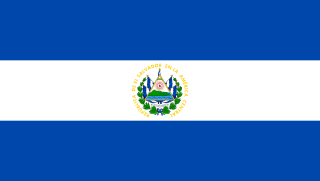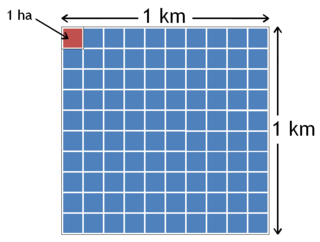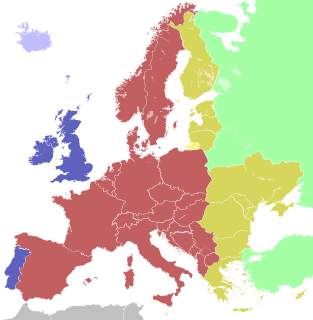
Central Europe is the region comprising the central part of Europe. It is said to occupy continuous territory that are otherwise conventionally Western Europe, Southern Europe, and Eastern Europe. The concept of Central Europe is based on a common historical, social and cultural identity. Central Europe is going through a phase of "strategic awakening", with initiatives such as the CEI, Centrope and the Visegrád Four. While the region's economy shows high disparities with regard to income, all Central European countries are listed by the Human Development Index as very highly developed.

The Central African Republic is a landlocked country in Central Africa. It is bordered by Chad to the north, Sudan to the northeast, South Sudan to the east, the Democratic Republic of the Congo to the south, the Republic of the Congo to the southwest and Cameroon to the west. The CAR covers a land area of about 620,000 square kilometres (240,000 sq mi) and had an estimated population of around 4.6 million as of 2016. Currently, the C.A.R. is the scene of a civil war, ongoing since 2012.

A central bank, reserve bank, or monetary authority is the institution that manages the currency, money supply, and interest rates of a state or formal monetary union, and oversees their commercial banking system. In contrast to a commercial bank, a central bank possesses a monopoly on increasing the monetary base in the state, and also generally controls the printing/coining of the national currency, which serves as the state's legal tender. A central bank also acts as a lender of last resort to the banking sector during times of financial crisis. Most central banks also have supervisory and regulatory powers to ensure the solvency of member institutions, to prevent bank runs, and to discourage reckless or fraudulent behavior by member banks.

Central America is located on the southern tip of North America, or is sometimes defined as a subcontinent of the Americas, bordered by Mexico to the north, Colombia to the southeast, the Caribbean Sea to the east, and the Pacific Ocean to the west and south. Central America consists of seven countries: Belize, Costa Rica, El Salvador, Guatemala, Honduras, Nicaragua, and Panama. The combined population of Central America has been estimated to be 41,739,000 and 42,688,190.

Central Asia stretches from the Caspian Sea in the west to China in the east and from Afghanistan in the south to Russia in the north. The region consists of the former Soviet republics of Kazakhstan, Kyrgyzstan, Tajikistan, Turkmenistan, and Uzbekistan. It is also colloquially referred to as "the stans" as the countries generally considered to be within the region all have names ending with the Persian suffix "-stan", meaning "land of".

El Salvador, officially the Republic of El Salvador, is the smallest and the most densely populated country in Central America. It is bordered on the northeast by Honduras, on the northwest by Guatemala, and on the south by the Pacific Ocean. El Salvador's capital and largest city is San Salvador. As of 2016, the country had a population of approximately 6.34 million.

Eastern Europe is the eastern part of the European continent. There is no consensus on the precise area it covers, partly because the term has a wide range of geopolitical, geographical, cultural, and socioeconomic connotations. There are "almost as many definitions of Eastern Europe as there are scholars of the region". A related United Nations paper adds that "every assessment of spatial identities is essentially a social and cultural construct". One definition describes Eastern Europe as a cultural entity: the region lying in Europe with the main characteristics consisting of Greek, Byzantine, Eastern Orthodox, Russian, and some Ottoman culture influences. Another definition was created during the Cold War and used more or less synonymously with the term Eastern Bloc. A similar definition names the formerly communist European states outside the Soviet Union as Eastern Europe. The majority of historians and social scientists view such definitions as outdated or relegated, but they are still sometimes used for statistical purposes.

Central Park is an urban park in Manhattan, New York City. It is located between the Upper West Side and Upper East Side, roughly bounded by Fifth Avenue on the east, Central Park West on the west, Central Park South on the south, and Central Park North on the north. Central Park is the most visited urban park in the United States, with an estimated 37–38 million visitors annually, and one of the most filmed locations in the world. In terms of area, Central Park is the fifth largest park in New York City, covering 843 acres (341 ha).

This page is a progressive and labelled list of the SI area orders of magnitude, with certain examples appended to some list objects.

A unitary state is a state governed as a single power in which the central government is ultimately supreme. The central government may create administrative divisions. Such units exercise only the powers that the central government chooses to delegate. Although political power may be delegated through devolution to local governments by statute, the central government may abrogate the acts of devolved governments or curtail their powers. A large majority of the world's states have a unitary system of government.

Comedy Central is an American pay television channel owned by Viacom Global Entertainment Group, a unit of the Viacom Media Networks division of Viacom. The channel is geared for mature audiences and carries comedy programming in the form of both original, licensed, and syndicated series and stand-up comedy specials, as well as feature films.

The Reserve Bank of India (RBI) is India's central banking institution, which controls the issuance and supply of the Indian rupee. Until the Monetary Policy Committee was established in 2016, it also controlled monetary policy in India. It commenced its operations on 1 April 1935 in accordance with the Reserve Bank of India Act, 1934. The original share capital was divided into shares of 100 each fully paid, which were initially owned entirely by private shareholders. Following India's independence on 15 August 1947, the RBI was nationalised on 1 January 1949.

Grand Central Terminal is a commuter rail terminal located at 42nd Street and Park Avenue in Midtown Manhattan, New York City. Grand Central is the southern terminus of the Metro-North Railroad's Harlem, Hudson and New Haven Lines, serving the northern parts of the New York metropolitan area. It also contains a connection to the New York City Subway at Grand Central–42nd Street. The terminal is the third-busiest train station in North America, after New York Penn Station and Toronto Union Station.

The North American Central Time Zone (CT) is a time zone in parts of Canada, the United States, Mexico, Central America, some Caribbean Islands, and part of the Eastern Pacific Ocean.

The Eastern Time Zone (ET) is a time zone encompassing part or all of 22 states in the eastern part of the contiguous United States, parts of eastern Canada, the state of Quintana Roo in Mexico, Panama in Central America, and the Caribbean Islands.

UTC−05:00 is a time offset that subtracts five hours from Coordinated Universal Time (UTC). In North America, it is observed in the Eastern Time Zone during standard time, and in the Central Time Zone during the other eight months. The western Caribbean uses it year round.

Central European Summer Time (CEST), sometime referred also as Central European Daylight Time (CEDT), is the standard clock time observed during the period of summer daylight-saving in those European countries which observe Central European Time (UTC+01:00) during the other part of the year. It corresponds to UTC+02:00, which makes it the same as Central Africa Time, South African Standard Time and Kaliningrad Time in Russia.
PubMed Central (PMC) is a free digital repository that archives publicly accessible full-text scholarly articles that have been published within the biomedical and life sciences journal literature. As one of the major research databases within the suite of resources that have been developed by the National Center for Biotechnology Information (NCBI), PubMed Central is much more than just a document repository. Submissions into PMC undergo an indexing and formatting procedure which results in enhanced metadata, medical ontology, and unique identifiers which all enrich the XML structured data for each article on deposit. Content within PMC can easily be interlinked to many other NCBI databases and accessed via Entrez search and retrieval systems, further enhancing the public's ability to freely discover, read and build upon this portfolio of biomedical knowledge.

Adherents of Islam constitute the world's second largest religious group. According to a study in 2015, Islam has 1.8 billion adherents, making up about 24.1% of the world population. Most Muslims are either of two denominations: Sunni or Shia. Islam is the dominant religion in Central Asia, Indonesia, Middle East, North Africa, the Sahel and some other parts of Asia. The diverse Asia-Pacific region contains the highest number of Muslims in the world, easily surpassing the Middle East and North Africa.




















